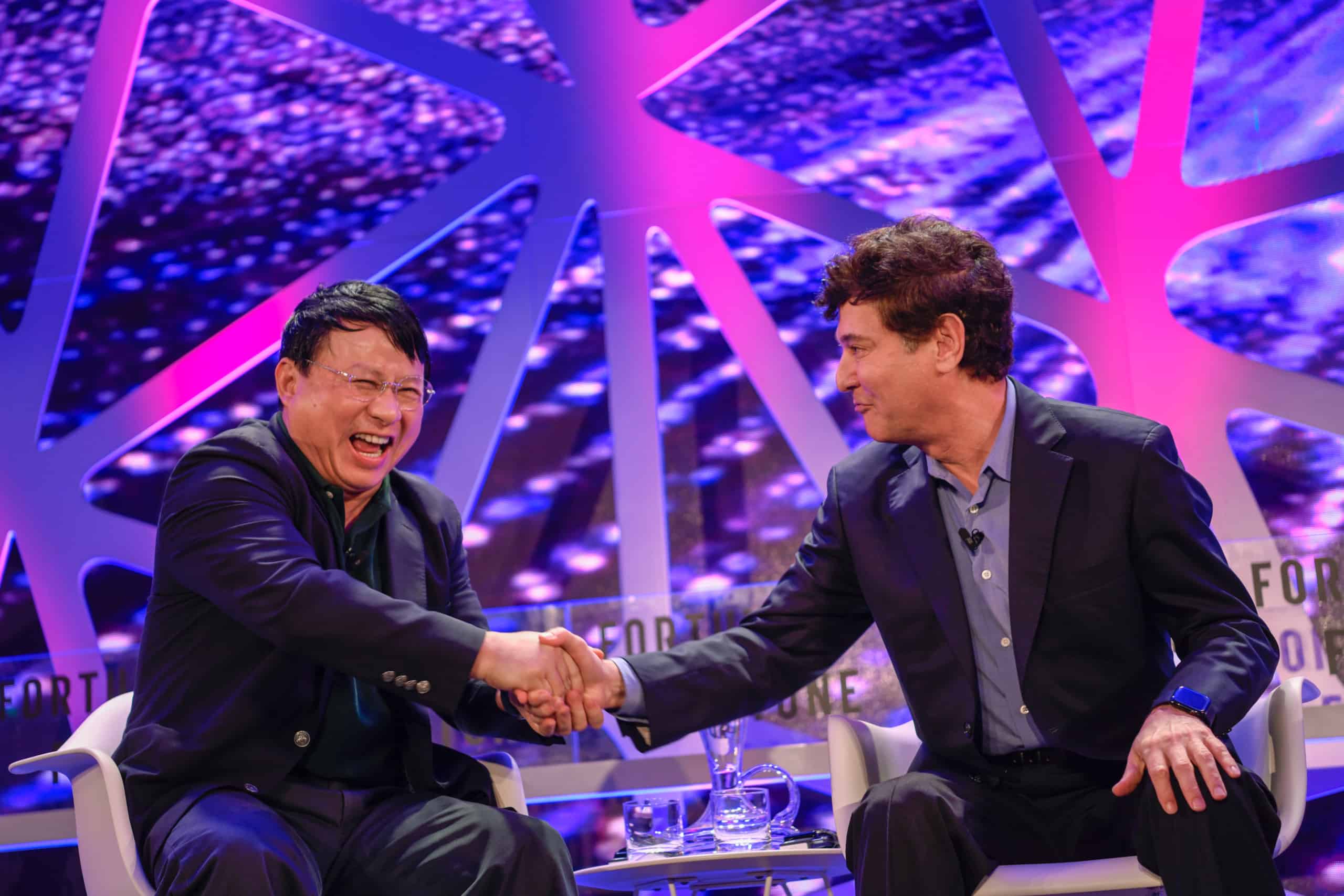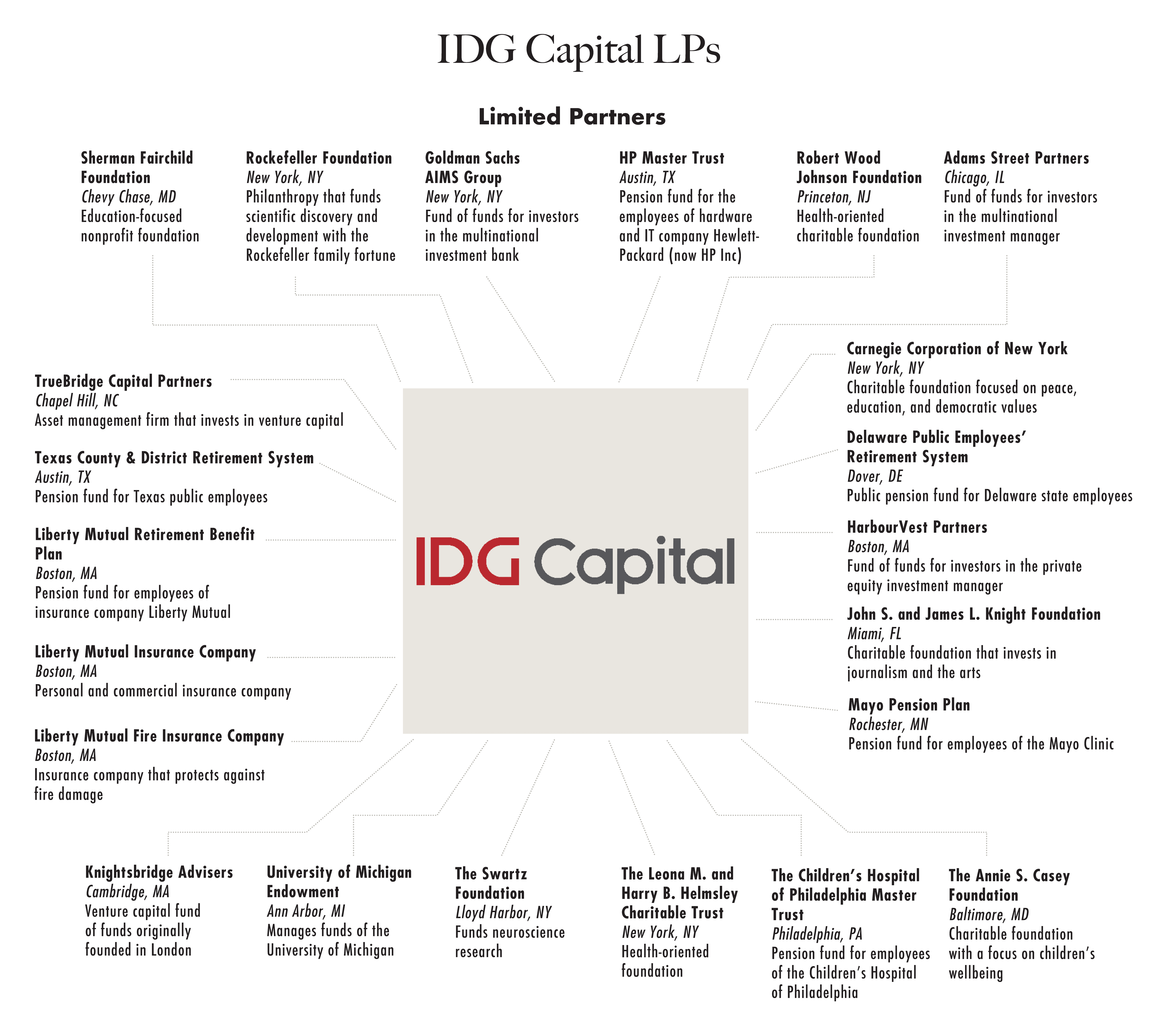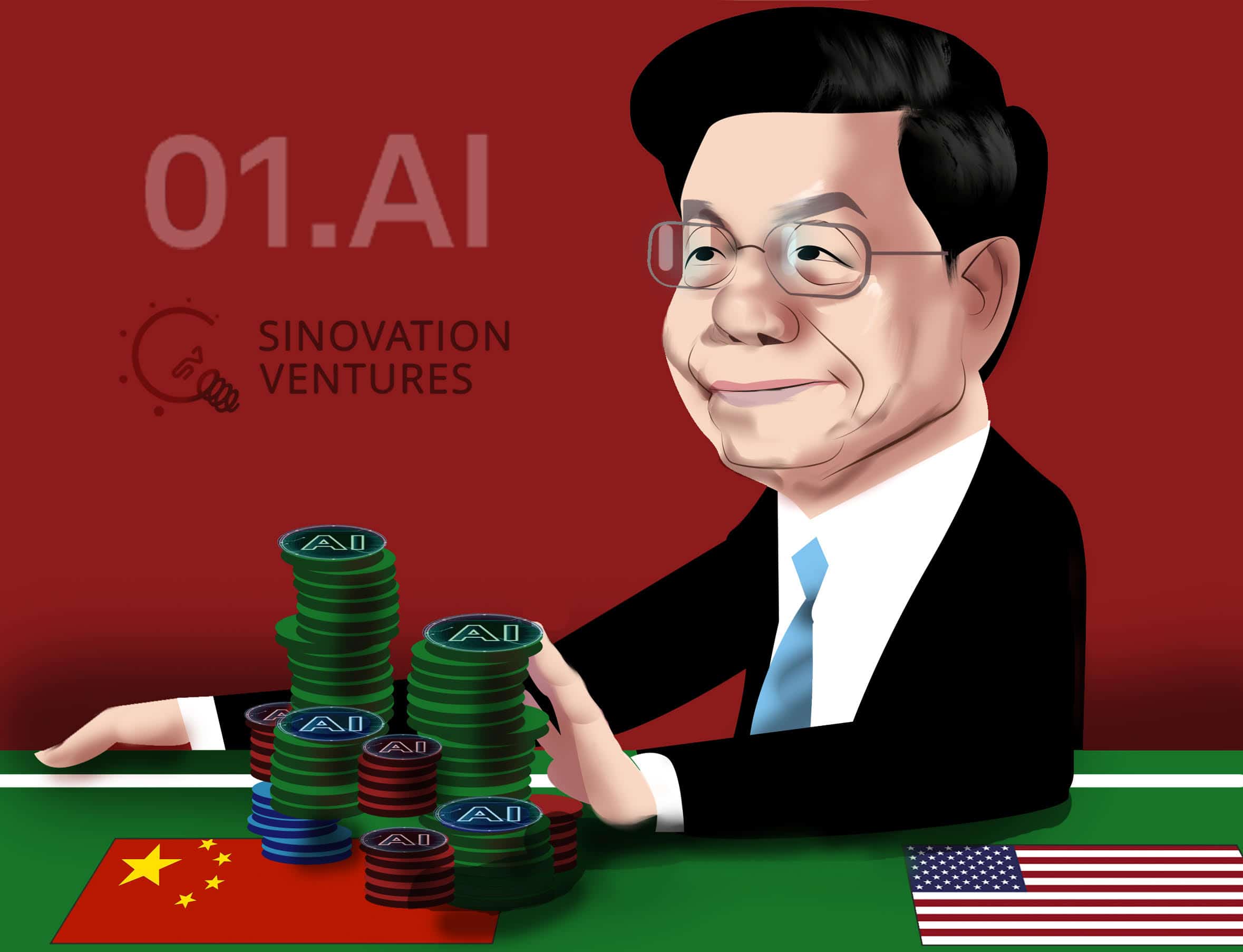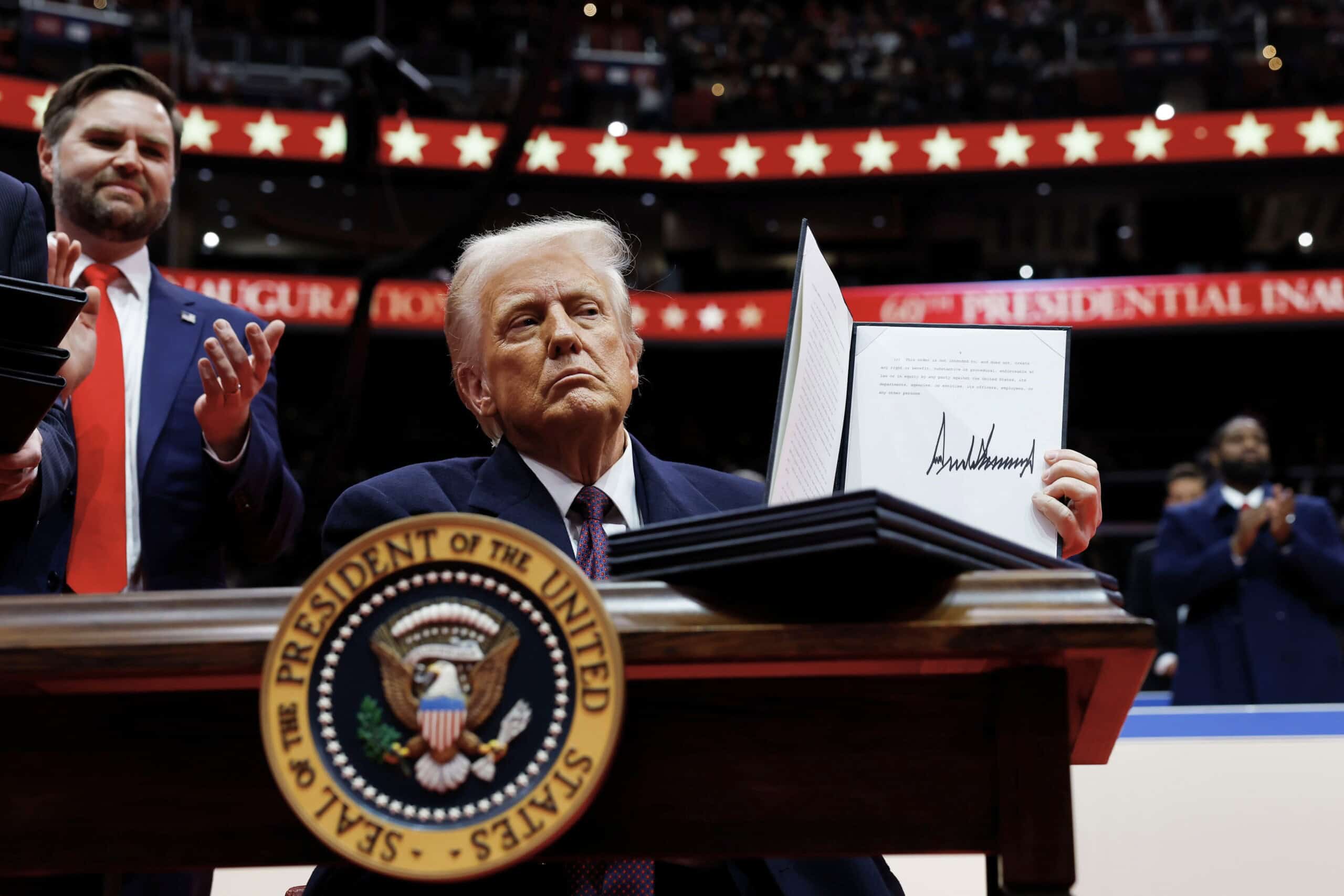
Credit: Shawn Koh/Fortune, Creative Commons
IDG Capital has backed some of China’s hottest startups. The venture capital and private equity firm that got its start in China in 1993 has made more than 1,000 investments over the past two decades. It made early bets on the Chinese search engine giant Baidu and the powerhouse social networking and gaming giant Tencent but has also backed Xiaomi, SenseTime, Pony.ai and Pinduoduo. Today, it has over $23 billion in assets under management, according to PitchBook.
It has stayed ahead of the curve to become the world’s fourth-most successful investor in unicorns, according to a Hurun report.1Unicorns are privately held companies worth $1 billion or more.
Though IDG Capital was formed in the United States, its portfolio is predominantly Chinese.2Data from PitchBook shows that 608 of the 732 companies it’s backed are Chinese, as of March 5. Far behind is second-place United States with 72 companies. Patrick J. McGovern, the late chairman of the Boston-based parent company, International Data Group, brought on Hugo Shong in the 1990s to establish IDG Capital’s operations in China. Later, IDG Capital raised a $586-million fund for Chinese TMT (technology, media, and telecoms) startups, and, with co-chairman Jim Breyer’s firm (Breyer Capital) set up a $1 billion fund for growth-stage, China-focused companies.
IDG Capital’s China operations have been so successful that in 2017, the Beijing-based unit teamed up with China Oceanwide Holdings, a major Chinese property developer, to acquire the parent group, International Data Group, and its subsidiaries.3IDG founder McGovern died in 2014.
At The Wire, we periodically focus on fast-growing firms investing in China, introducing them to our readers and mapping their corporate and shareholding structures. Several months ago, we began with Hillhouse Capital. Now, we introduce readers to IDG Capital.
IDG Capital’s Management Team
Co-chairman Hugo Shong brought IDG Capital to China as one of the first foreign-backed venture capital firms to set up in the country. IDG initially started in China by selling the trade magazine Computerworld, a difficult sell in a market that then had few computers, but later signed deals to license Harper’s Bazaar, Good Housekeeping, Esquire, the Robb Report, and Cosmo. Shong also set up operations to invest in technology startups. IDG Capital, for example, was an early, pre-IPO investor in both Tencent and Baidu (though it sold its stake in Tencent years before the firm went public).
Co-chairman Breyer’s path to IDG Capital wasn’t as direct. He worked with IDG Capital when his former employer Accel backed one of their funds in 2005. Through Accel and Breyer Capital, he worked with IDG at least seven times before joining the team himself. He still manages his VC firm Breyer Capital.
Information about more team members, many of whom have been working for IDG Capital since the 1990s, can be found on its website.

IDG’s Limited Partners
IDG Capital has had dozens of limited partners, or LPs, over its nearly 30 years in China, raising billions of dollars, primarily to invest in Chinese technology companies. Pension funds, philanthropies, and foundations frequently partner invest with the firm. Among the most notable Chinese LPs is the National Council for Social Security Fund, the Chinese government fund.4It contributed to IDG Capital’s “Harmony Growth Fund” in 2010, IDG’s first RMB fund that was formed with a focus on technology, media, and telecommunications.
But a large share of the funds that IDG raises to put to work in China come from institutional investors from the U.S. PitchBook has identified 45 of IDG Capital’s limited partners. Below we look at 22 LPs, institutions that have backed at least two of IDG Capital’s funds.

Major Investments
IDG Capital invested early in some of China’s biggest companies and rising stars. It participated in the early fundraising rounds for Meituan, the e-commerce giant, and Yuanfudao, the education firm that is now one of China’s hottest startups. In January, one of the startups it invested in, a vaping company called RELX Technology, raised more than $1 billion with an IPO on the New York Stock Exchange.5Read The Wire’s coverage of RELX’s offering here.
Some of its biggest up-and-comers have also been subject to scrutiny in recent months. Pinduoduo has been wrapped up in questions over worker treatment after two young employees died within days of each other. Electric vehicle maker Xpeng ran into trouble, too; it recalled more than 13,000 vehicles in January.6The company sold a total of 27,041 vehicles in 2020.
Below, trace some of IDG Capital’s more recent major investments.

Yuanfudao, Backed by IDG Capital
Yuanfudao was already China’s big name in education tech, but it drew new attention this year for its platforms’ utility in the Covid-19 pandemic. The company offers remote educational resources for K-12 students, serving 400 million users in China. A blockbuster $2.2-billion fundraising round in late 2020 raised its valuation to $15.5 billion, roughly double that of March 2020. Backing came from big names like Tencent, Hillhouse Capital, media and entertainment investor CMC Capital Group, and, of course, IDG Capital. Yuanfudao is now reportedly seeking financing at a more than $20 billion valuation.
Its onshore ownership structure — including IDG Capital employees’ cumulative 19-percent stake — is shown in the chart below.7Yuanfudao, like many startups, may also raise large sums of money offshore, in Hong Kong of the Cayman Islands or elsewhere. This only reflects one of the company’s onshore structure’s tracked by WireScreen. Also, IDG employees may be holding shares for IDG Capital and not their personal accounts.

Data: WireScreen

Hannah Reale is a staff writer with The Wire. Previously, she reported for the GBH News Center for Investigative Reporting, The West Side Rag, and her college newspaper, The Wesleyan Argus. @hannahereale



